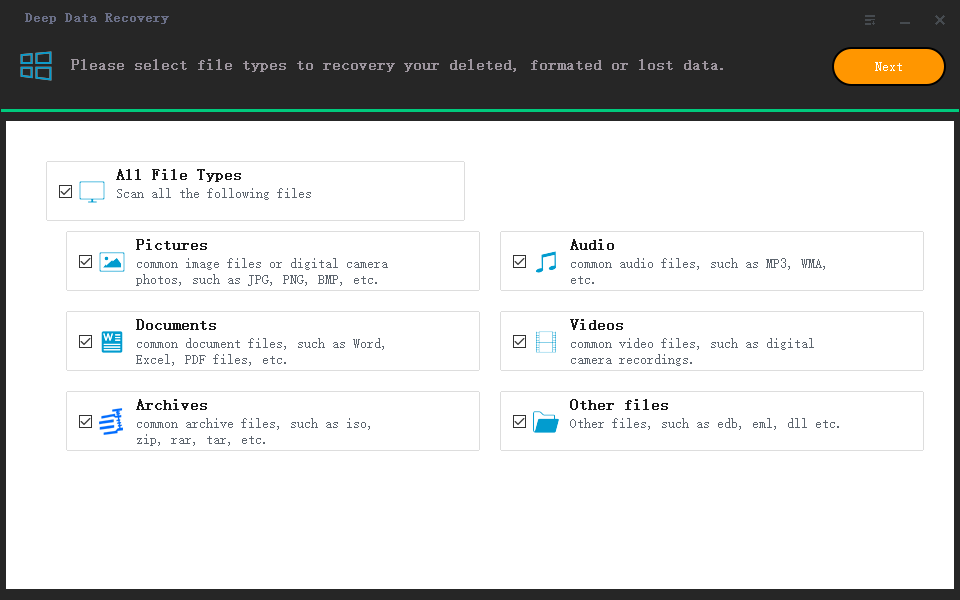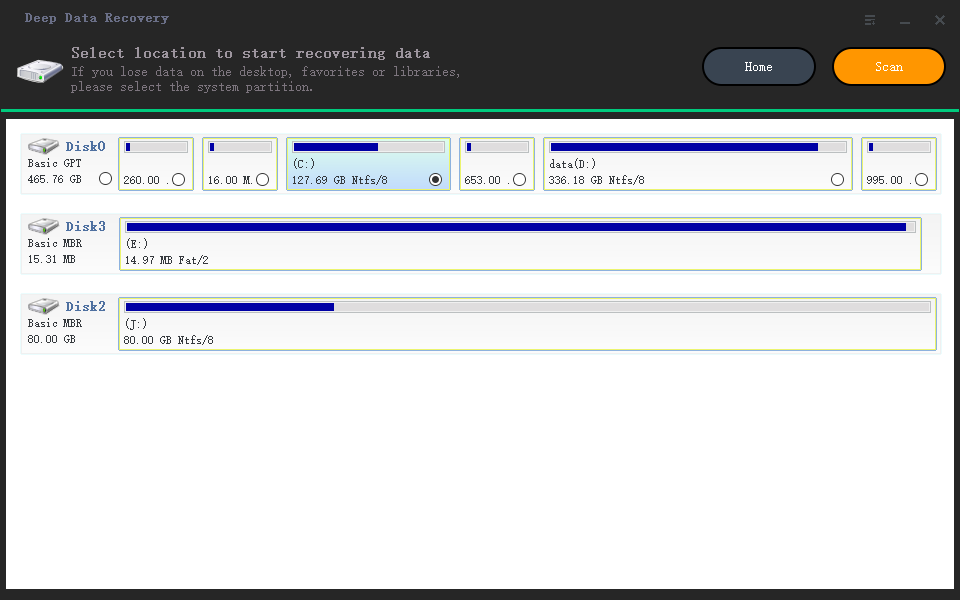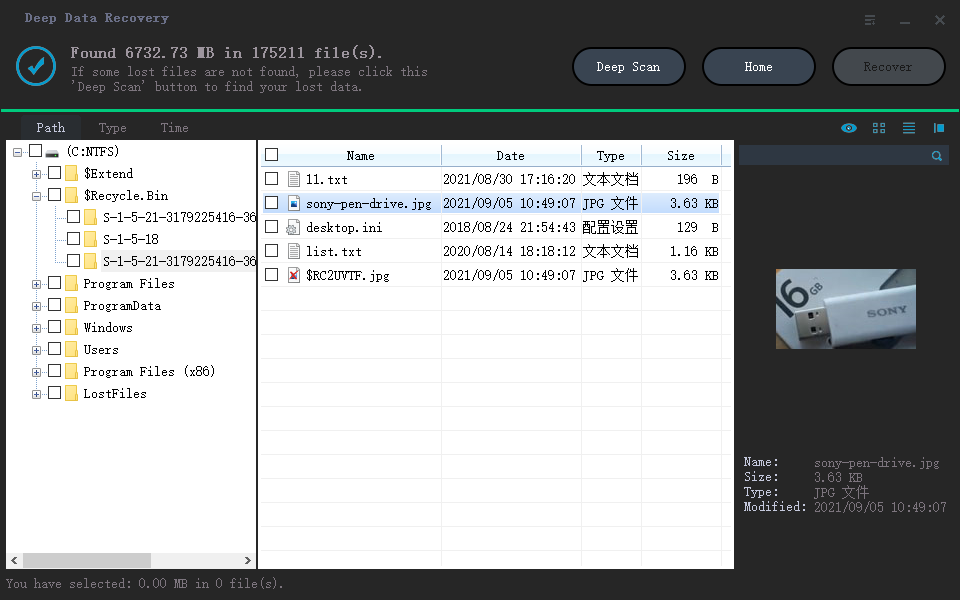How to Convert/Change RAW File System to NTFS Without Data Loss
What Is RAW File System
A file system, such as NTFS, FAT32, or exFAT, is essential for storing and retrieving data from a storage medium like a hard drive, USB flash drive, or SD card. Without a file system, the storage device is inaccessible and is referred to as a RAW disk or drive. A RAW disk typically occurs when a hard drive or external storage device becomes RAW due to various reasons, including corruption, formatting issues, or a failed file system.
- The file system of the drive is missing or damaged
- The RAW drive has not been formatted with a file system, such as FAT12/FAT16/FAT32 or NTFS/NTFS5.
- The computer is unable to read the current file system of the storage medium, which is preventing it from being recognized and used.
A RAW file system can be caused by various issues such as virus infections, format failures, or unexpected system shutdowns, power outages, and more. When a hard drive or external storage device becomes RAW, it becomes unusable, and you can't access the files stored on it. You may encounter error messages like "you need to format the disk in drive before you can use it" or "The type of the file system is RAW, CHKDSK is not available for RAW drives" when trying to access the device or run CHKDSK on it.
How to Fix a Drive with RAW File System
To fix a RAW drive without losing data, you need to format it, but first, you should recover the existing files on the drive using a data recovery software, and then format the drive to assign a file system to it and make it usable. This way, you can avoid losing any data.
- First, Perform RAW data recovery
- Convert the RAW file system to a Windows-compatible file system, such as NTFS, by formatting the drive.
Procedure 1. Recover Data from RAW Drive with Qiling Deep Data Recovery
You can recover data from a RAW drive with the help of hard drive recovery software, such as Deep Data Recovery, which supports deleted file recovery, formatted file recovery, and RAW drive recovery, allowing you to access any existing files on your RAW hard drive, USB flash drive, memory card, and more.
To recover data from a drive with the RAW file system, you can try using data recovery software such as EaseUS Data Recovery Wizard, Recuva, or Disk Drill. These tools can scan the drive for recoverable files, even if the file system is corrupted or missing.
Step 1. Select file types that you want to recover
Launch Deep Data Recovery and select the file types you want to recover. Click the "Next" button to begin the recovery process.

Step 2. Select and scan the RAW partition
If the RAW partition contains a partition label, you can directly select it from the drives list and click "Scan" to look for the lost files.

Step 3. Preview found data from the scan result
After completing the scan, all available files on the RAW hard drive will be displayed, allowing you to view and select the files you want to recover. You can sort the scanned data by file format to make it easier to find the specific files you need.

Step 4. Recover data from RAW partition
To recover data from a RAW drive, select all files and click "Recover" to retrieve all the data. Then, choose another internal or external hard drive to save the recovered data and click "OK" to initiate the recovery process.
Qiling Deep Data Recovery is a powerful data recovery software that can help retrieve all data from a RAW drive. Once you've successfully recovered your files, you can then format the drive to NTFS, FAT32, or other file systems with confidence.
Procedure 2. Convert RAW File System to NTFS by Formatting
Formatting a drive can be done in several ways, including using File Explorer, Disk Management, or a free format tool. To format a RAW drive using File Explorer, you can follow a specific process. (Note: the rest of the text is not provided, as per your request to keep it short)
Step 1. To format a RAW drive or disk, open the "This PC" window, select the RAW drive or disk, and choose the "Format" option. This will erase all data and convert the drive to a usable format.
Step 2. Set a file system (NTFS, FAT32, or exFAT) according to your needs and click "Proceed".

Use RAW Recovery Services to Repair RAW Drive Without Formatting
If you're facing issues with your hard drive and don't want to format it, consider using a RAW recovery service to help resolve the problem.
For a personalized and manual RAW recovery service, consult with Qiling data recovery experts. After a complimentary diagnosis, they can provide the following services:
- Repair damaged RAW drive without formatting
- Recover data from RAW drive, including BitLocker encrypted drives
- Recovering a RAW partition or drive is a process of restoring the original file system and formatting to a previously formatted or corrupted storage device. This can be done using various data recovery software and techniques.
The Bottom Line
Qiling Data Recovery can also recover files from a formatted drive, allowing you to use the software even if you have formatted the RAW drive before performing data recovery.
Related Articles
- 4 Methods | Convert RAW to FAT32 for Micro SD Card/USB
- USB Flash Drive & External Hard Drive - Everything You Should Know
- Windows 10 Won't Update with/Without Sending Errors - (20+) Tips
- How to Recover Severely Corrupted Word File According to Different Scenarios (Can Open or Cannot Open)